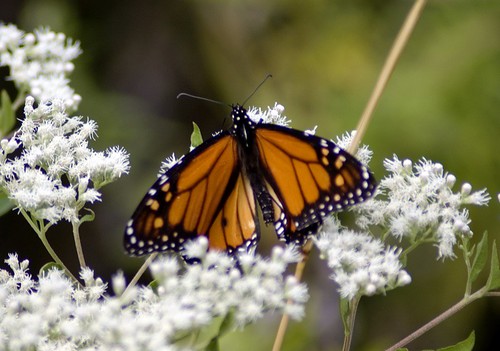They arrive in California each winter, an undulating ribbon of orange and black. [...] This year, though, the monarchs’ flight seems more perilous than ever. The Xerces Society for Invertebrate Conservation, a nonprofit group that conducts a yearly census of the western monarch, said the population reached historic lows in 2018, an estimated 86 percent decline from the previous year.
That in itself would be troubling news. But, combined with a 97 percent decline in the total population since the 1980s, this year’s count is “potentially catastrophic,” according to the biologist Emma Pelton.
Why should we care?
Butterflies are important because they quickly respond to ecological changes and serve as a warning about an ecosystem’s health, Ms. Pelton said. They pollinate flowers, too.Therefore, planting milkweed will help support the surviving monarchs.
Monarchs require milkweed, a herbaceous plant that grows throughout the United States and Mexico, for breeding and migration. Acreage of milkweed, though, has been declining in recent years because of pesticide use and urban development, Ms. Pelton said.

No comments:
Post a Comment